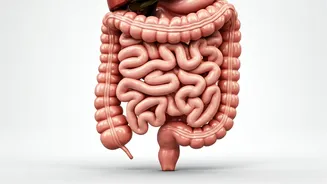Constipation Unveiled
Constipation, a common digestive issue, is characterized by infrequent bowel movements or difficulty passing stools. This condition can range from mild
discomfort to more serious complications. The frequency of bowel movements varies from person to person, but generally, having fewer than three bowel movements per week is considered constipation. This irregularity can stem from various factors, including dietary choices, lack of physical activity, certain medications, and underlying medical conditions. Recognizing the early signs and understanding the underlying causes are essential steps in managing and preventing constipation effectively.
Common Causes Identified
Several factors contribute to the onset of constipation. A diet lacking in fiber, which is found in fruits, vegetables, and whole grains, can significantly slow down the digestive process. Insufficient fluid intake is another major culprit, as water helps soften stools and facilitates their passage through the intestines. Lack of physical activity can also contribute to constipation because exercise helps stimulate bowel movements. Certain medications, like some antidepressants, pain relievers, and iron supplements, can have constipation as a side effect. Underlying medical conditions, such as irritable bowel syndrome (IBS) or thyroid problems, may also contribute to the development of constipation.
Recognizing The Symptoms
Identifying the symptoms of constipation is crucial for timely intervention. Common signs include infrequent bowel movements, difficulty passing stools, and straining during bowel movements. Stools may be hard, dry, and difficult to pass. You might also experience abdominal pain, bloating, and a feeling of incomplete evacuation, meaning you feel like you still need to go after a bowel movement. Other symptoms may include a decreased appetite, and in some cases, nausea. If you experience these symptoms regularly, it's essential to take proactive steps to address the issue and prevent potential complications.
Dangers of Delaying
Ignoring constipation can lead to several complications. Chronic constipation can cause hemorrhoids, which are swollen veins in the anus and rectum, and anal fissures, which are small tears in the lining of the anus. Fecal impaction, a severe form of constipation, occurs when stool becomes hardened and lodged in the rectum, requiring medical intervention. Over time, prolonged straining can also weaken the pelvic floor muscles. In some cases, chronic constipation can contribute to the development of diverticulitis, a condition where small pouches form in the colon wall and become inflamed or infected. Addressing constipation promptly is important to avoid these potential health risks.
Relief and Prevention
Fortunately, there are several effective strategies to relieve and prevent constipation. Increasing fiber intake through fruits, vegetables, and whole grains is a key step. Staying well-hydrated by drinking plenty of water throughout the day helps to soften stools. Regular physical activity can stimulate bowel movements, so incorporating exercise into your routine is beneficial. Over-the-counter remedies, such as fiber supplements or stool softeners, can also provide relief. In some cases, a doctor may prescribe medications to treat chronic constipation. Building healthy habits, such as establishing a regular bathroom schedule and not ignoring the urge to defecate, is also crucial for preventing constipation.
When to Seek Help
While lifestyle changes and over-the-counter remedies can often resolve constipation, there are times when medical attention is necessary. If you experience severe abdominal pain, rectal bleeding, or unexplained weight loss, seek medical advice promptly. If constipation persists for more than two weeks despite trying home remedies, consulting with a healthcare professional is recommended. Individuals experiencing significant changes in bowel habits, especially those over 50, should also consult a doctor to rule out any underlying medical conditions. A doctor can perform a physical examination, review medical history, and order tests to determine the cause of the constipation and develop a tailored treatment plan.














